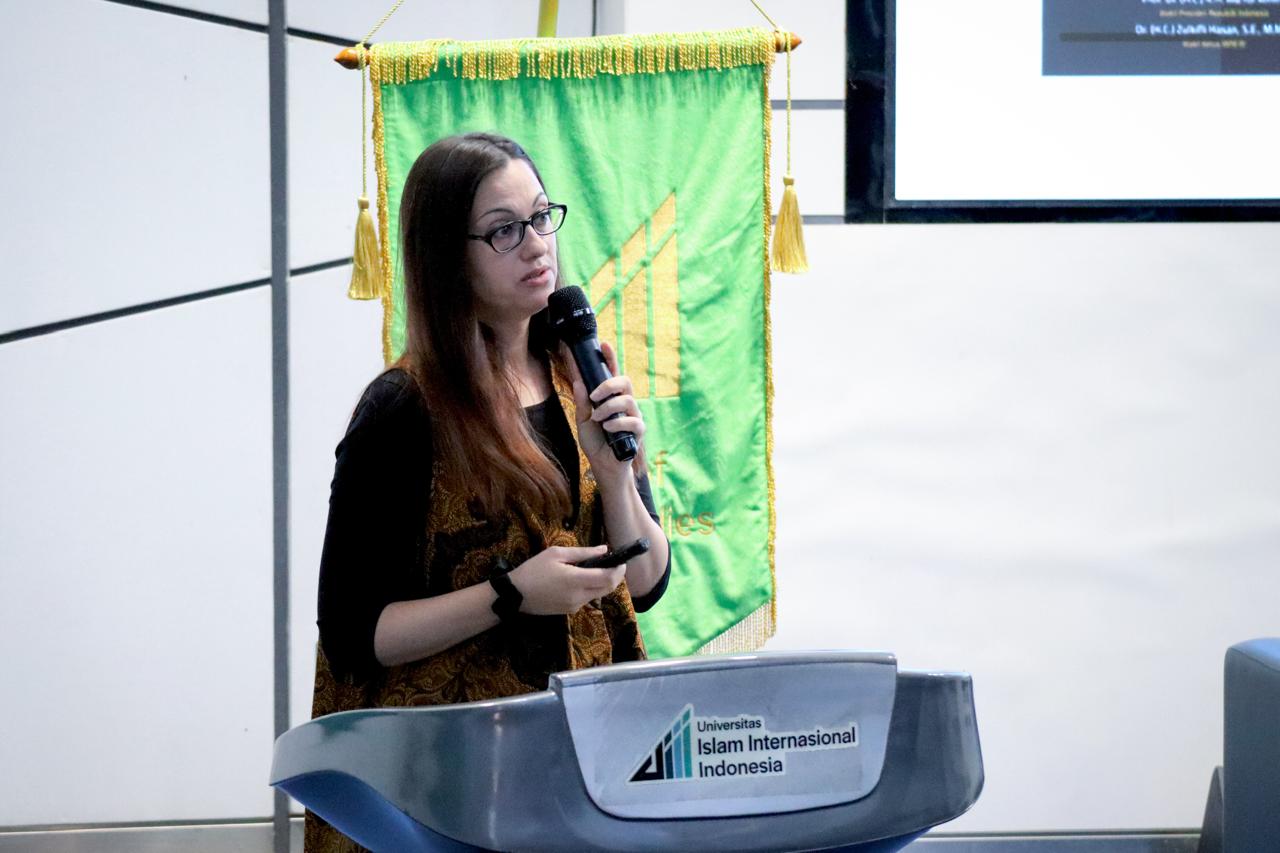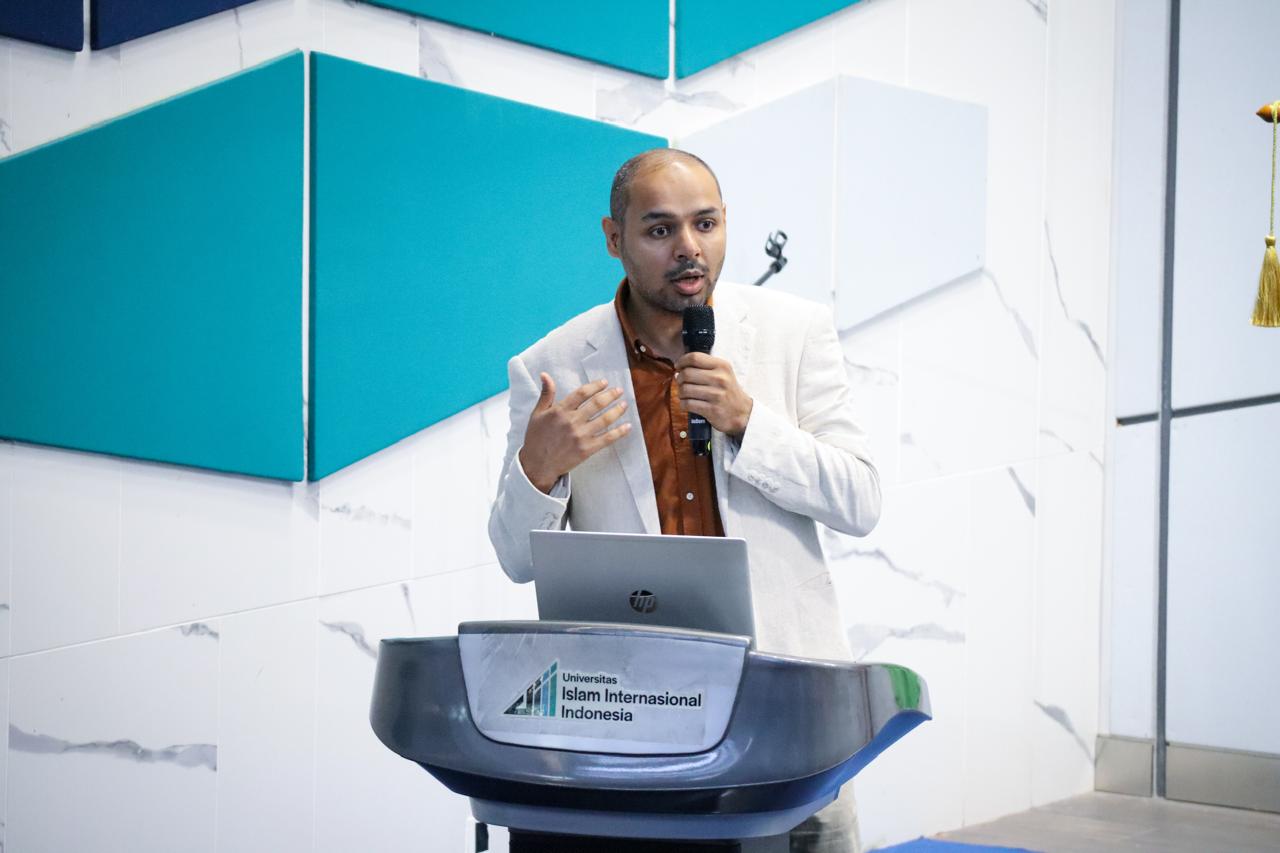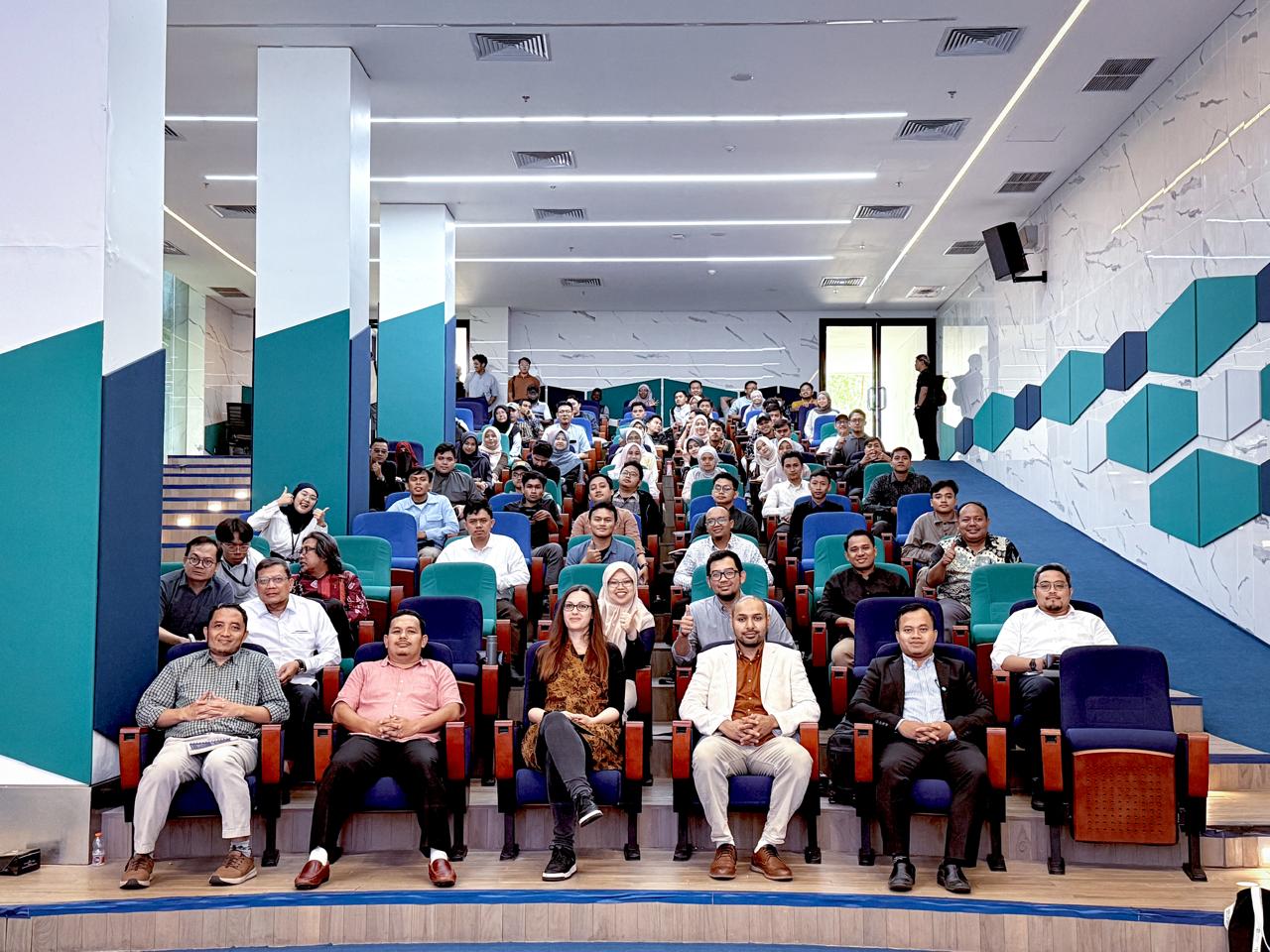Depok, Indonesia – September 22, 2025 – The Faculty of Islamic Studies (FIS), Universitas Islam Internasional Indonesia (UIII), through its Center of Islam and Global Challenges (IGC), officially kicked off the new academic semester with a series of public lectures featuring distinguished international scholars.
The event set a strong intellectual tone for the semester ahead, bringing together students, faculty, and invited guests to engage in discussions on Indonesia’s evolving position in global affairs and the timeless contributions of Islamic scholarship. By integrating contemporary issues with classical knowledge, the lectures reflected FIS UIII’s vision of becoming a hub for critical dialogue and advanced Islamic studies.

Islam, Decolonization, and Indonesia’s Global Leadership
The first lecture was delivered by Dr. Amanda tho Seeth from Humboldt University Berlin under the title “Back on the World Stage? Islam and Decolonization in Indonesia’s International Affairs.”
Dr. tho Seeth argued that Indonesia is re-emerging as a leading voice of the Global South, positioning itself as a bridge between the West and the Islamic world. She emphasized the role of Indonesia’s long-standing “bebas-aktif” foreign policy in shaping its independent and proactive stance in international affairs.
More than a political strategy, she explained, Indonesia’s international engagement is increasingly guided by Islamic epistemologies and values. Concepts such as ukhuwwah wataniyyah (national brotherhood) and rahma lil alamin (Islam as a mercy to all creation) are not only spiritual ideals but also frameworks for advancing justice, inclusivity, and peace in the global order.
According to Dr. tho Seeth, this synthesis of diplomacy and Islamic ethics demonstrates Indonesia’s unique contribution to the ongoing process of decolonizing international relations.

Rediscovering Imam al-Bukhārī’s Scholarly Legacy
The second lecture was presented by Dr. Belal Alabbas, titled “Al-Bukhārī Ṣāḥib al-Ṣaḥīḥ: The Life and Works of Islam’s Foremost Traditionist.” His talk explored the enduring intellectual legacy of Imām al-Bukhārī (810–870 CE), one of the most respected scholars in Hadith studies.
Dr. Alabbas traced the three phases of al-Bukhārī’s scholarly journey: his early memorization and training, his travels across the Muslim world in search of knowledge, and his mature contributions as an author.
He also highlighted the sophisticated structure of Ṣaḥīḥ al-Bukhārī, consisting of 97 chapters with thousands of subchapters, reflecting an unparalleled rigor in the authentication and organization of Hadith. The lecture offered students valuable insights into the challenges al-Bukhārī faced—particularly during the Qur’an controversy of his time—and how his intellectual integrity secured his place as one of the greatest traditionists in Islamic history.

Setting the Tone for the Semester
These public lectures marked an important milestone for the Faculty of Islamic Studies as it entered a new semester. By opening with topics that connect global affairs and classical Islamic heritage, FIS reaffirmed its mission to nurture critical, globally aware, and ethically grounded scholars.
The event also demonstrated FIS UIII’s commitment to fostering an academic environment that bridges the local and the global, the contemporary and the classical. It encouraged students to see themselves not only as learners of tradition but also as contributors to ongoing global conversations on Islam, justice, and society.Through initiatives like this, the Faculty of Islamic Studies at UIII continues to strengthen its role as a leading center of Islamic higher education in Indonesia and beyond.